Bitter cold putting homeless Tri-Citians in danger. Easy ways you can help
While most people in the Tri-Cities are hunkered down at home, safe from the cold weather snap in Washington, the people most at risk in our community might not be.
So what can you do to help if you see someone who appears to be sleeping outside in this weather?
Andrew Porter, Tri-City Union Gospel Mission executive director, told the Herald that these frigid temperatures can be dangerous for people experiencing homelessness, especially if they aren’t aware of what resources are available to help.
Two people have died from exposure in Yakima County. One was homeless and the other had a medical emergency and couldn’t get inside, the Yakima County Coroner’s Office told the Herald.
Benton County Coroner Bill Leach said they haven’t had any exposure-related deaths, but they can often take a few days to be reported. Franklin County has not had any exposure related deaths.
Porter said that the number of people they helped in 2023 skyrocketed, with much of that growth coming late in the year. Tri-City UGM had more than 38,500 overnight stays last year, or an average of 105 each day at the shelter overnight. It’s the only year round emergency shelter in the Tri-Cities.
There are several temporary shelters that have opened to help during dangerous weather.
All Saints Episcopal Church, at 1322 Kimball Ave. in Richland is open from 5 p.m. to 9 a.m. when the temperature drops below 20 degrees. They’ve been open since last week. Anyone interested in volunteering can call 509-948-0290 or fill out a contact form on their website. They’re located off of BFT Bus Route 123.
Kennewick Christian Church, at 1921 S. Olympia Ave., is open 24 hours when the temperature drops to 10 degrees. They’re off of Bus Route 41.
Restoration Community Impact, at 4000 W. Clearwater St. 110, has also opened up through Jan. 19
The winding down of federal pandemic housing aid programs led to an increased need in the community, leaving many on the streets as temperatures began to drop.
Porter said as housing aid programs ended in September, they saw a corresponding increase in overnight stays.
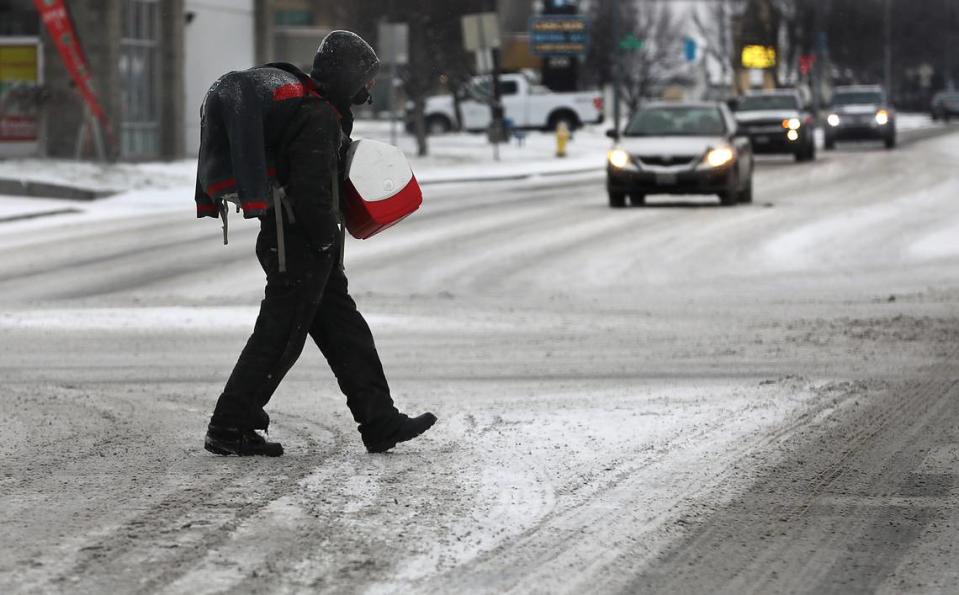
While every situation is different, Porter said there are some ways you can help if you suspect someone has nowhere to go. He said there are a number of reasons why someone might not be staying at a shelter overnight, but the mission still has resources that can help.
The mission has printable resource cards on its website that you can hand out. He recommends putting together an aid bag with things like snacks, socks and hand warmers, including two key items — the aid card detailing mission’s resources and a transit system bus ticket to help them get to the shelter.
The men’s shelter is at 221 S. Fourth Ave. in Pasco and the women and children’s shelter is a few blocks away at 110 N. 2nd Ave.
Porter said that Ben Franklin Transit buses on Route 3 stop near each, and a single ticket should cover the cost to get there from anywhere in the Tri-Cities.
Bus passes can be purchased at transit centers or in packs of 10 online for $12. Seniors and disabled individuals ride free.
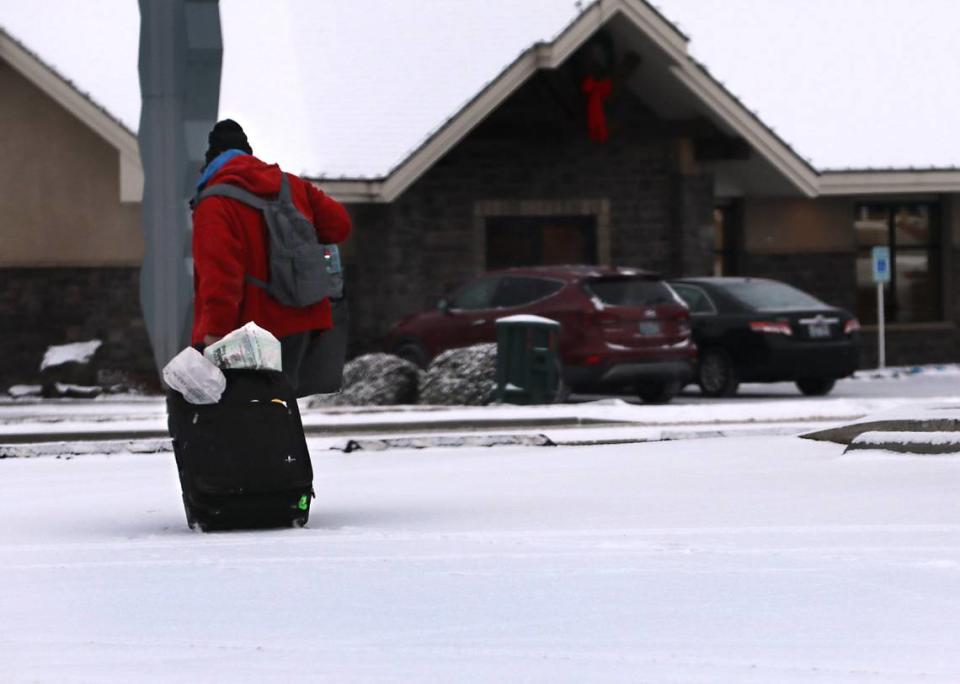
“I just tell people to go with your gut” when approaching someone you think might need help, Porter said.
Porter said that some local police departments carry the cards with them, and actively contact people who might be experiencing homelessness in inclement weather. Kennewick police also do weekly outreach, usually on Thursdays.
Additionally the annual Point in Time count is set for next week on Jan. 25, when volunteers do a census of homelessness in the area and identify and contact people with the most critical needs. The count is done annually in cities across the U.S.
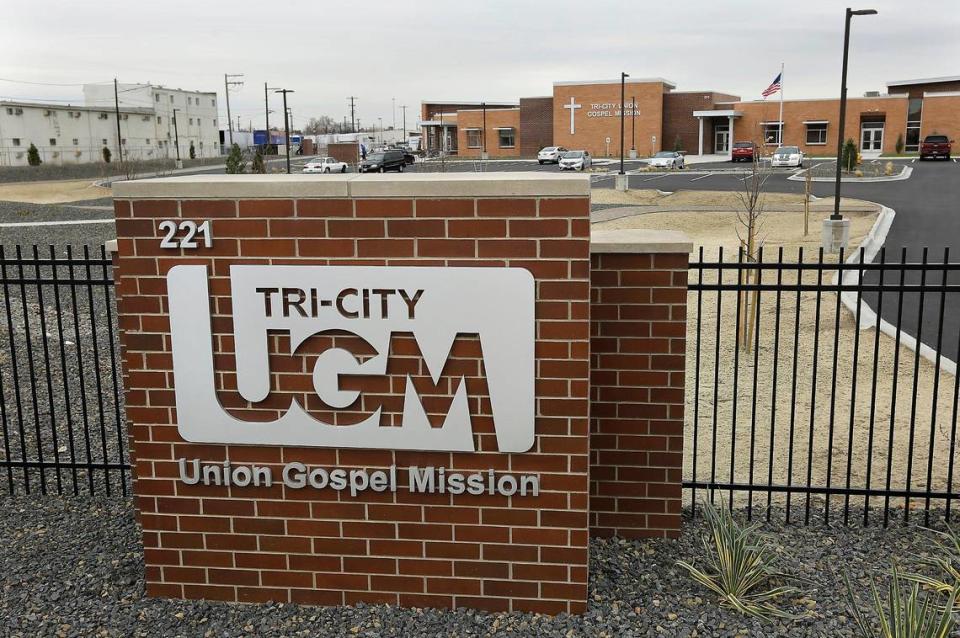
The count helps communities identify gaps in services, measure progress for initiatives and offer resources to the people contacted. It can also help illustrate local needs when applying for state or federal funding.
Those interested in helping with the the count can contact Deena Horton with the Benton County Human Services Department, by email at Deena.Horton@co.benton.wa.us.
Ways to help
Other high need items at this time of year are sleeping bags and blankets for those who might not go to the shelter. Porter said they can still come in and warm up, get a meal and take a shower, even if they don’t want to stay.
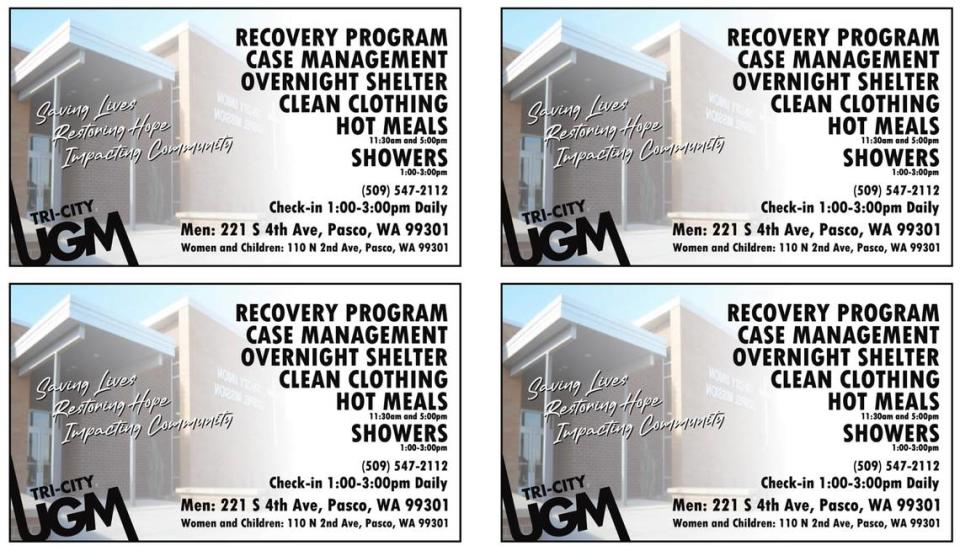
What the shelter needs most this time of year though is monetary donations. Porter said their gas bill runs from $5,500 to $7,500 for the winter. They also have upkeep and maintenance.
The mission, which operates a men’s shelter and a women and children’s shelter in Pasco, spends an estimated $120,000 annually on just utilities and serves more than 8,800 meals per month. They’re also in the process of fundraising for a new women and children’s shelter, hoping to move out of the nearly 100-year-old building it’s currently occupying in downtown Pasco.
Unfortunately winter weather impacts everyone, and the shelter has racked up some repair bills with part of their sprinkler system experiencing freeze damage, Porter said.
Union Gospel Mission is funded through private donations. Porter said they see peaks and valleys in fundraising throughout the year, with donations dipping after holiday giving.
“Most months we’re in the hole. We’re in the red, but by the end of late November, December we’re back in the black again,” Porter said.
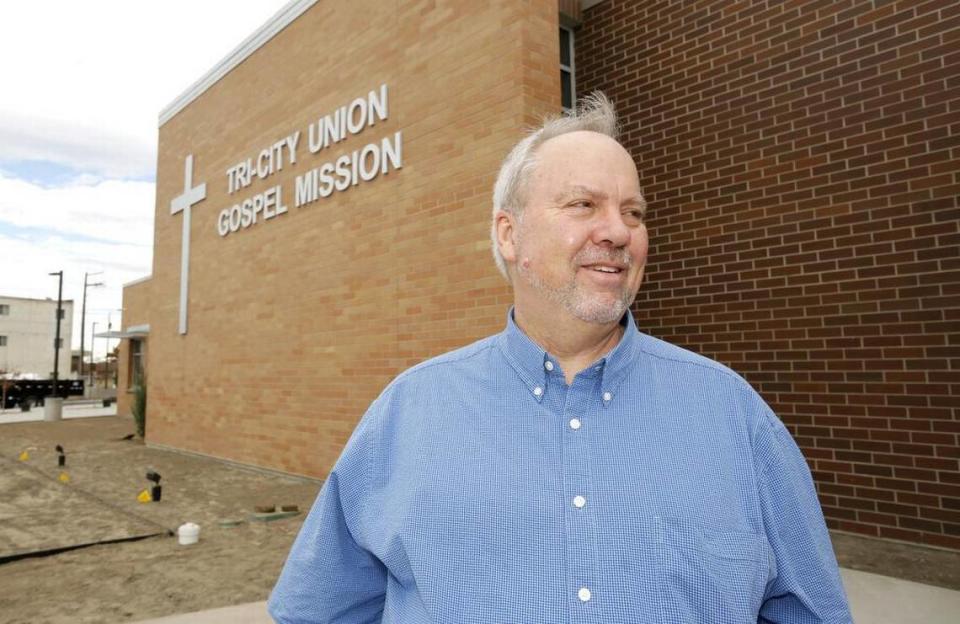
Porter said it takes a lot to keep the shelter running, especially with an increase in demand during the winter.
“We have a lot of repairs that go on and keeping the buildings maintained, just the cost of running a business and being able to serve people,” he said. “It takes people as well. It’s not an easy situation when you have all kinds of people coming in off the streets, you have to deal with a variety of things. You have to have people to deal with that.”
One positive about being privately funded is that the shelter’s funding remains fairly consistent and isn’t subject to swings in funding based on government spending.
“We just rely on the community and families,” he said.
For more information on how to help, visit www.tcugm.org.
Recommended for the rescue bags:
Hand warmers
TCUGM Resource Card
Bus ticket to help get to the mission
Socks
Bottle of water
Tooth brush and toiletries
Granola bars and snacks
Small bible or bible verses


